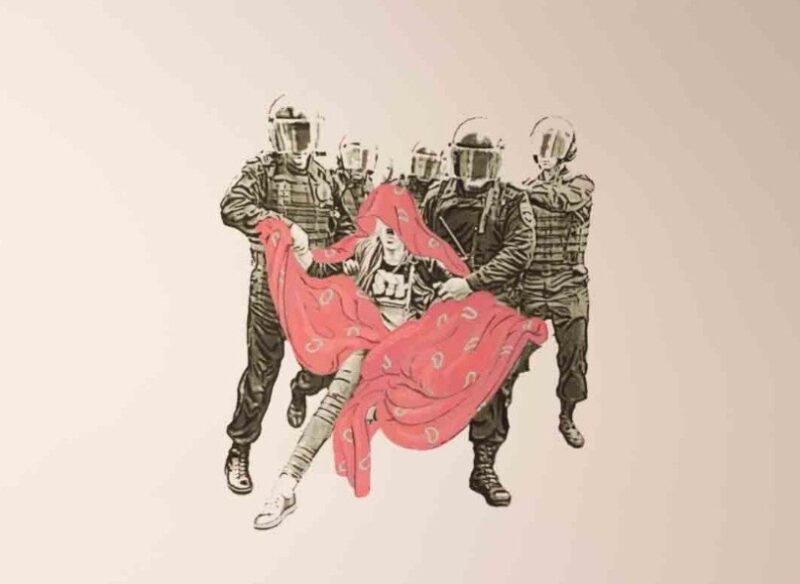

In September 2024, numerous educators’ and parents’ associations issued statements and complaints concerning the use of excessive police force during a protest demanding improved conditions in public education.
In its statement, the Executive Board of the DOE held the New Democracy government and the political leadership of the Ministry of Education and Religious Affairs accountable for what it described as an unprecedented and unprovoked police assault using tear gas and batons during the education sector rally on Wednesday, 4 September, outside the Ministry of Education. The DOE reported that among those affected were teachers, parents, underage students, and even members of the executive boards of DOE, OLME (Federation of Secondary Education Teachers), and ASGME (National Confederation of Parents of Students of Greece).
The Panhellenic Federation of Special Education Personnel Associations (POSEEPEA) raised concerns over the police response, reporting that tear gas was used against demonstrators, including children. The protest had been organised to oppose the merging and consolidation of school classes—a policy criticised for leading to overcrowding in classrooms, which participants argued undermines the quality of public education.
Under the rule of law, the actions and operations of police authorities must be governed by certain principles, including the principle of legality, the principle of proportionality, the prohibition of abuse of police power, and the respect for and protection of human rights. The powers of police authorities and the conduct they must observe in the exercise of their duties are regulated, among others, by Presidential Decrees 538/1989, 141/1991, and 254/2004.
Although the police may resort to the use of force in order to enforce the law and protect human rights, this does not mean that all use of preventive or repressive force is lawful. On the contrary, the arbitrary use of force and police action that exceeds legal limits constitutes a dangerous phenomenon for a democracy.
Moreover, police conduct must safeguard—not obstruct or undermine—the unhindered exercise of the right of assembly, which is enshrined in Article 11 of the Constitution: “Greeks shall have the right to assemble peaceably and unarmed.” (Article 11(1)) “The police may be present only at outdoor public assemblies. Outdoor assemblies may be prohibited by a reasoned police authority decision, in general if a serious threat to public security is imminent, and in a specific area, if a serious disturbance of social and economic life is threatened, as specified by law.” (Article 11(2)).
In light of the above, it must be emphasised that, in the case at hand, the conduct of the police authorities raises concerns regarding a possible breach of the legal limits governing police action. As such, the matter should be subject to investigation by the competent oversight bodies.
Bank Account number: 1100 0232 0016 560
IBAN: GR56 0140 1100 1100 0232 0016 560
BIC: CRBAGRAA
![]()
In a time where the very foundations of democracy are gradually being eroded by the rise of extreme nationalism, alt-right movements, the spread of disinformation and corporate capture, the efforts of organisations such as Vouliwatch are more relevant than ever.
We rely on the generosity of each and every one of you to continue with our efforts for more transparency and accounta
By financially supporting Vouliwatch you support our litigation strategy, our campaigns for transparency and accountability in the political system, the development of new civic tech tools, our research projects and last but not least our impartial and accurate